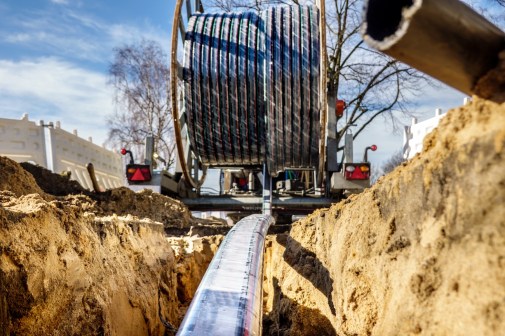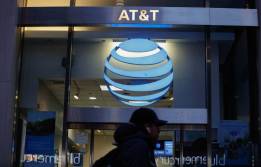States waiting, mulling legal action on FCC’s Lifeline reforms

The Federal Communications Commission grabbed headlines when it voted last month to include broadband in its “Lifeline” telecom subsidies program for low-income people — and now states are anxiously awaiting the new rules to see if it will include provisions that many governors oppose.
Though the FCC passed reforms to Lifeline on March 31 — and unveiled some key details of the proposal — it has yet to release the exact rules it actually enacted in the contentious party-line vote. Now, as a battle brews in Congress over a bill to cap the program’s budget, state observers are increasingly uncertain about what the future holds for Lifeline.
There’s little controversy over the heart of the reforms, namely that the program now offers $9.25 per month for low-income households to buy broadband plans (instead of just voice service) from qualified telecom providers. Yet the commission provoked outcry from states when it decided to give the federal government the power to determine which companies would qualify as broadband providers, and create a third-party “National Eligibility Verifier” to examine which people qualify for the program, a pair of responsibilities traditionally carried out in some part by the states.
In a release issued the day before the FCC’s vote, the National Governors Association wrote that the reforms would “preempt states’ authority to protect consumer interest” with the third-party verifier. Additionally, the group charged that “the FCC’s proposal would centralize oversight within the FCC, which has the potential to allow eligible telecommunications carriers to circumvent state scrutiny” and put “low-income consumers at risk.”
Though a spokeswoman for the association declined to discuss those charges in more detail, they’re representative of the concerns many states expressed to the FCC ahead of the vote.
Michigan’s Public Service Commission wrote a letter to the commission in February, urging them to preserve states’ authority to decide if companies qualify as Lifeline providers.
“States’ experience and knowledge in these areas help to fight against waste, fraud, and abuse and saves the FCC time and resources and helps preserve universal service funds,” the commissioners wrote.
Catherine Sandoval, a commissioner on California’s Public Service Commission, and Betty Ann Kane, chairman of Washington, D.C.’s commission, also met with a handful of FCC commissioners and staffers in March to address that same issue and press the FCC to let states opt out of the third-party eligibility verifier, according to an FCC filing.
But telecom companies pushed back on these claims from the states.
Jennifer McKee, vice president and associate general counsel of the National Cable and Telecommunications Association, told StateScoop that going state-by-state to earn approval for the program was vastly “unappealing” for many of her group’s members in the past.
“Connecticut may have one set of rules and California may have another set of rules and Michigan does something different,” McKee said. “So we think this will be much easier for companies to participate and encourage more companies that hadn’t participated in the voice program to participate in broadband.”
[Read more: Midwestern schools, libraries missing out on millions in broadband funds from FCC]
Danielle Frappier, co-chair of the communications practice at the firm Davis Wright Tremaine, specializes in Lifeline law and agreed that her clients often stayed out of the program given how “expensive” it was to operate on a “nationwide basis.”
“I think [states] are just loathe to give up jurisdiction in a lot of cases, I just don’t see any other reason,” Frappier said. “If they really thought about it, they’d say to themselves, ‘There can be national standards that we can enforce locally.’”
For internet accessibility advocates like Phillip Berenbroick, counsel for government affairs at Public Knowledge, any expansion of competition that policy promotes represents a huge win for low-income communities.
“There will be more choices for consumers, more competition for those consumers, which hopefully makes the quality of service available better,” Berenbroick said.
He also admits to being puzzled by the NGA’s resistance to the loss of authority in the area, since “so many states don’t even have their own regulatory authority any longer,” often leaving it to the FCC.
For her part, Frappier calls states’ opposition to the third-party eligibility verifier both “nuts” and “crazy” as well.
Many states currently defer to the FCC’s National Lifeline Accountability Database instead of maintaining their own systems to determine which people can use the program, and Frappier sees no reason why states wouldn’t simply expand those efforts to the new broadband service as well.
“Why would a state feel like they absolutely need to do it if we can have one national system that’s working?” Frappier said. “States are crunched for cash, so why do you need to create a separate state database which is going to just add expense for the state and for carriers?”
She also believes a centralized federal system would cut down on errors, noting that if a person using the program moves from one state to another, there’s no risk of them being entered into two different databases.
Yet Frappier also noted that this discussion is moot until the FCC actually releases a finalized rule for the reforms, as the commissioners work to reconcile all the “last-minute negotiated changes” to the program. Though she’s been expecting to receive the order for weeks now, she thinks some patience will be necessary for concerned states.
“We keep hearing that it will be released on ‘X day,’ and then ‘X day’ passes and nothing happens,” Frappier said. “So at this point, I don’t really know when it will be released.”
But once it is made public, Frappier believes the debate over the program won’t be over any time soon.
“We’ve got statements already from the states saying ‘We’re going to look at the order, but we’re not happy about that, we may sue,’” Frappier said.
Contact the reporter at alex.koma@statescoop.com, and follow him on Twitter @AlexKomaSNG.






